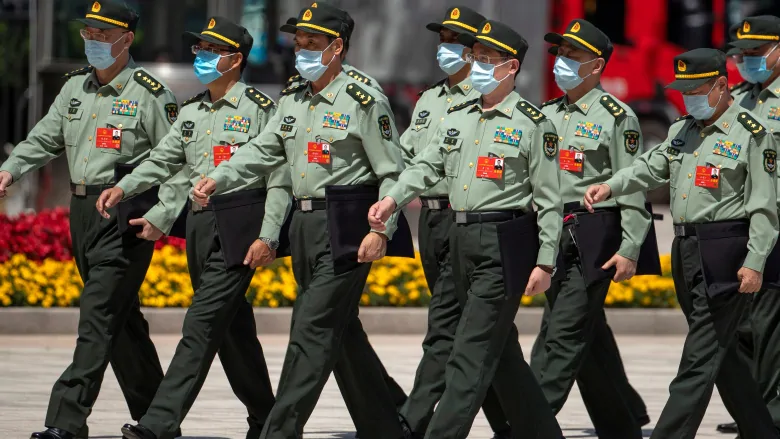Canada joined with its major allies Thursday in condemning China for imposing a new national security law on Hong Kong, one day after a contentious B.C. court ruling in the Meng Wanzhou affair.

Canada joined with its major allies Thursday in condemning China for imposing a new national security law on Hong Kong, one day after a contentious B.C. court ruling in the Meng Wanzhou affair.
The statement of “deep concern” with the United States, Australia and Britain comes as experts warn that two Canadians imprisoned in China could face retaliation because Wednesday’s court ruling in the Meng case didn’t go the way the People’s Republic would have liked.
The Chinese Embassy in Ottawa angrily denounced the decision by B.C. Supreme Court Justice Heather Holmes in the extradition case of the Huawei executive, who is wanted on fraud charges in the U.S., as it once more called for her immediate release.
Prime Minister Justin Trudeau said Thursday, to reporters after an online UN conference, that Canada’s independent judicial system “rendered a judgment without any political interference.” He noted Meng would “undoubtedly avail herself of” further legal moves to fight the extradition request.
The Meng dispute — which has plunged Sino-Canadian relations to an all-time low — did not dissuade Canada from signing on to the statement that criticizes China for imposing a national-security law on Hong Kong.
Watch: Trudeau comments on B.C. court decision on Meng Wanzhou:
Prime Minister Justin Trudeau spoke with reporters during a United Nations web cast on Thursday. 0:38
The Chinese territory is supposed to have autonomy under a “one country-two systems” agreement.
The statement said the law is “in direct conflict” with China’s “international obligations under the principles of the legally binding” agreement that saw Britain hand over its administration of Hong Kong to China on July 1, 1997.
“Hong K

